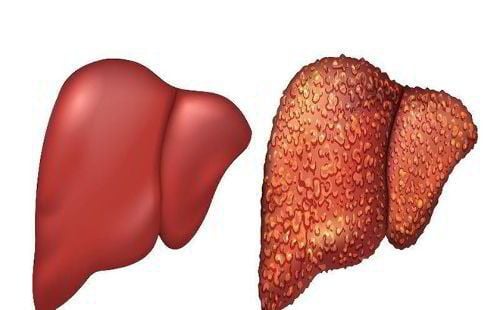This is an automatically translated article.
For organ transplant surgeries, the phenomenon of immune rejection is always a concern for the medical team. In order to minimize the risk of this incident, Myfortic has been licensed for use in the treatment protocol for organ transplant patients.
1. What does Myfortic do?
Myfortic drug belongs to the group of drugs with immunosuppressive ability, often used in combination with other drugs to limit the body's rejection of foreign factors in organ transplant surgeries such as liver and kidney. ...Myfortic works by weakening your body's defenses (immune system) to help your body accept the new transplant as your own.
2. Use Myfortic correctly
Patients should carefully read the doctor's instructions before using or re-using the drug. Normally, Myfortic is tolerated orally, twice daily on an empty stomach; Do not crush, chew, or break the tablet. The dose of Myfortic is based on your medical condition and response to treatment. In children, the dosage is based on body size. Even if you feel better, you should maintain the frequency of taking the medicine until further advice from your doctor.
Before taking Myfortic, tell your doctor if you:
Are allergic to the medicine or to mycophenolic acid, mycophenolate mofetil, or any other allergies. Have a medical history especially of: Cancer, liver disease (such as hepatitis B, hepatitis C), infections (such as herpes, shingles), stomach/intestinal problems (such as ulcers), rare genetic disorders (such as Lesch-Nyhan or Kelley-Seegmiller syndrome). Myfortic may make you dizzy or drowsy. So don't drive, use machines, or do anything that requires alertness until you can do it safely.
Myfortic may make you more susceptible to infections or worsen any existing infections. Therefore, avoid contact with people who have infections that can be spread to others (such as chickenpox, measles, flu).

Người mắc bệnh gan nên lưu ý nên uống thuốc Myfortic
In addition, the patient is not vaccinated/vaccinated without the consent of the doctor; Avoid contact with people who have recently received a live vaccine (such as the nasal flu vaccine).
To reduce your risk of being cut, bruised, or injured, use caution with sharp objects such as razors and nail clippers, and avoid activities such as contact sports.
Users are also discouraged from donating blood while taking Myfortic and for 6 weeks after stopping it; Do not donate sperm while using and for 90 days after stopping this medicine.
Before surgery, tell your doctor or dentist about all the products you use (including prescription drugs, over-the-counter medicines, and herbal products).
Myfortic is not recommended during pregnancy because of the risk of harm to the unborn baby. It is important to prevent pregnancy while taking this medicine and for 6 weeks after stopping it. If you become pregnant or think you may be pregnant, tell your doctor right away. Women of childbearing age should talk to their doctor about the benefits and risks (such as miscarriage); a pregnancy test should be performed before starting this medicine, after 8 to 10 days of treatment, and during routine follow-up visits.
Currently, there are not many studies to conclude whether Myfortic drug passes into breast milk or not. Due to the possible risk to the infant, breast-feeding while using the drug is not recommended.
3. Side effects of the drug Myfortic
Not all people who take Myfortic experience side effects. Therefore, contact medical facilities if you notice any unusual symptoms, such as:
Constipation, nausea, headache, diarrhea, vomiting, abdominal pain may occur. , bloating, tremors, dizziness, drowsiness, or trouble sleeping. Unusual fatigue, fast/irregular heartbeat, easy bleeding/bruising, swelling of the feet or ankles. Stomach/abdominal pain that doesn't go away, black stools, vomit that looks like coffee grounds, chest pain, shortness of breath/rapid breathing. This medicine may increase your risk of a rare but very serious (possibly fatal) brain infection (progressive multifocal encephalopathy-PML). Get medical help right away if you have any of these side effects such as: clumsiness, loss of coordination/balance, weakness, sudden changes in your thinking (such as confusion, trouble concentrating, memory loss), difficulty speaking/walking, seizures, vision changes. Any symptoms of a serious allergic reaction, including: Rash, itching/feeling (especially of the face/tongue/throat), severe dizziness, trouble breathing.

Thuốc Myfortic có thể gây ra triệu chứng mệt mỏi bất thường
4. Drug interactions
Drug interactions can change the way Myfortic works or increase your risk of serious side effects. This document does not cover all possible drug interactions so keep a list of all the products you use (including prescription/over-the-counter drugs and herbal products) and exchange with your doctor. Never start, stop, or change the dose of any medication without your doctor's approval.
Some products that may interact with this drug include: Other drugs that weaken the immune system/increase the risk of infection (such as natalizumab, rituximab).
This medicine may decrease the effectiveness of hormonal birth control such as the pill, patch or ring, which may increase your chances of getting pregnant.
Certain products may make it harder for your body to absorb Myfortic if they are taken at the same time. Generally, do not take this medicine at the same time as antacids containing aluminum and/or magnesium, cholestyramine, colestipol, or calcium-free phosphate binders (such as aluminum products, lanthanum, sevelamer). Ask your pharmacist for more details.
Please dial HOTLINE for more information or register for an appointment HERE. Download MyVinmec app to make appointments faster and to manage your bookings easily.
Reference source: webmd.com













